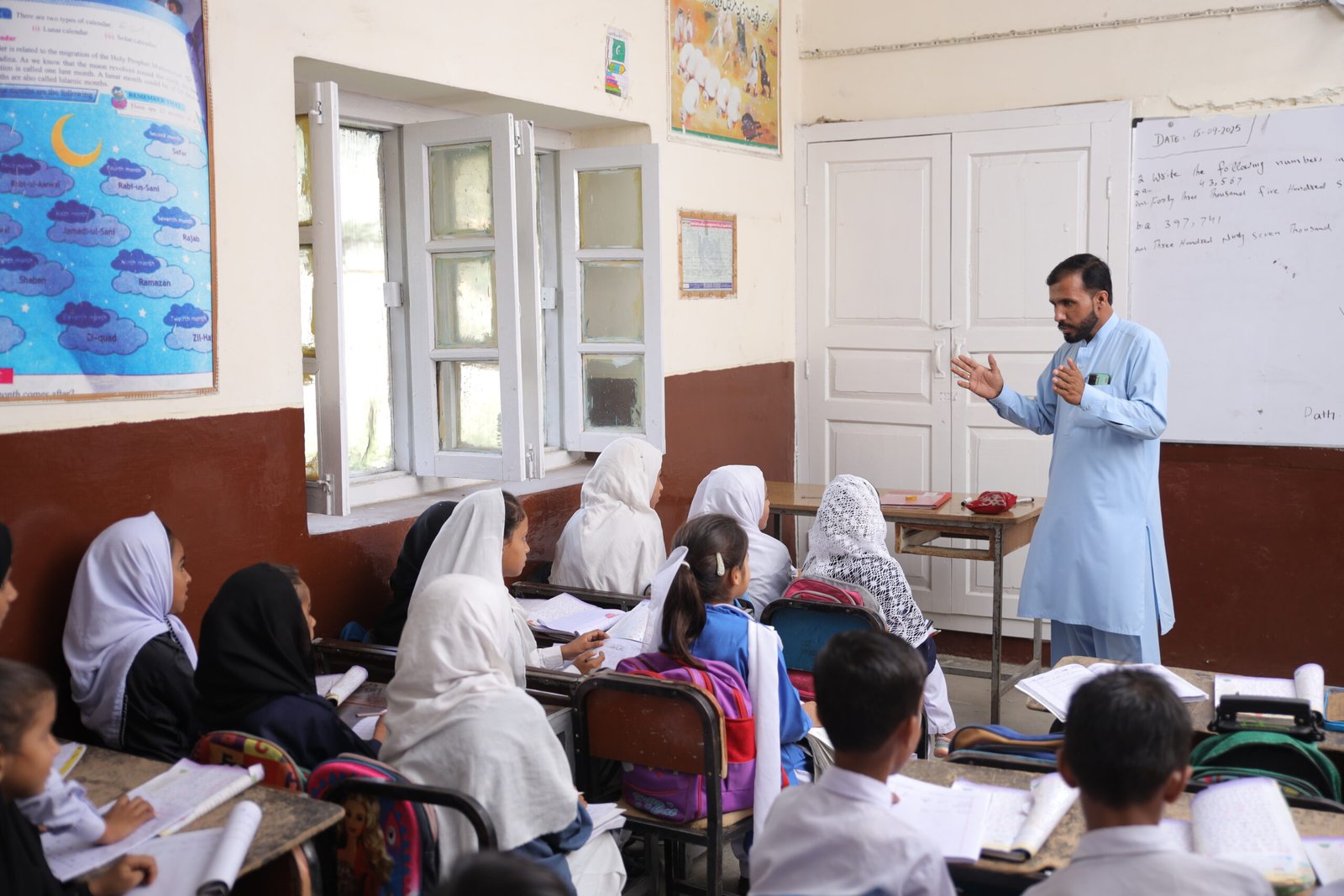We joined the Education World Forum to explore how global education systems are navigating AI, funding gaps, and the future of skills. The Education World Forum is one of the most influential global gatherings in education policy, bringing together ministers, funders, and thought leaders to debate the most pressing challenges facing education systems today. Now in its 21st year, EWF 2025 featured an impressive gathering of over 1000 delegates including Education and Skills Ministers from 135 countries across the world, ranging from the most developed economies to low-and lower middle-income countries. From artificial intelligence and digital transformation to education financing and the future of vocational skills, the forum offers a rare opportunity to hear first-hand how governments and partners are shaping the future of learning worldwide.
This year’s forum surfaced a strong consensus: education systems are under pressure to adapt—and fast. With a growing funding gap, accelerating technological change, and an urgent need to equip learners for an uncertain labour market, the global education agenda is shifting. But how are different countries responding, and what lessons might apply more broadly to international development?
Digital transformation in education
One of the most talked-about topics was how education systems are navigating digital transformation. Governments are asking difficult but necessary questions: How do we harness the benefits of new technologies while keeping learners at the centre? How do we ensure equal access? And what role should artificial intelligence play in the classroom?
National strategies varied. China shared a vision for intelligent education, the UK voiced a commitment to develop generative AI guidelines, and Finland highlighted efforts to limit digital device use in schools to better support students’ social development. Several countries also raised concerns about the digital divide and called for urgent investment in devices and connectivity.
What stood out was the shared recognition that while digital tools are essential, they are not a substitute for teachers. Relationships, empathy, and human connection remain core to learning, and technology must support, not replace those elements.
Investing in teachers, enhancing the appeal of the teaching profession, reducing excessive workload and improving working conditions, and offering ongoing peer-based professional learning opportunities to teachers are some of the most impactful solutions adopted by the world’s highest performing education systems. Equally, understanding how children learn best, cultivating a ‘growth mindset’ in all students, and focusing on learning both inside and outside the classroom, has demonstrated transformative results across individual students, schools and education systems.

Our Principal Consultant, Saima Anwer, (third from right) with Wajiha Qamar, Minister of State at the Ministry of Federal Education and Professional Training (fourth from right), Maria Wyard, Group Head Health, Education and Demography British High Commission Islamabad (fifth from right), and other members of the Pakistan delegation
Rethinking education financing
Another central theme was how to address the global education funding gap, now estimated at $97 billion. There was widespread agreement that education is not a short-term cost but a long-term investment. Ministers and donors alike emphasised the need to unlock more resources and make better use of existing ones.
Innovative solutions featured prominently, including impact investing, blended finance, and debt swaps. Encouragingly, the private sector and philanthropic foundations are showing greater interest in education as a viable investment area, not just a social obligation.
At the same time, with more than 70% of funding still coming from governments, public finance remains critical. Many speakers called for greater efficiency, stronger evidence, and smarter spending to ensure funds reach those who need them most.
The future of skills and vocational education
Another prominent theme discussed throughout the conference was skills and vocational education, highlighting its potential to drive inclusive economic growth. Speakers stressed that vocational training should not be viewed as a fallback option, but as a first-choice route to high-quality employment.
Changing perceptions will require deliberate action. Countries shared examples of partnering with industry to shape curricula, investing in modern training centres, and building prestige around vocational pathways. Practical measures included income-contingent loans, employer-backed national training funds, and lifelong learning policies that extend beyond the classroom.
As one panellist put it: “We used to learn to do our work. Now, learning is the work.” This shift requires systems that support continual upskilling and reskilling in response to a changing world.
Why this matters
The discussions at the Education World Forum reflected a growing convergence around key priorities for education systems: responsible integration of digital technologies, sustainable financing models, and the need to align skills development with evolving labour market demands.
For those working on policy reform and systems strengthening, these insights offer a comparative view of how different countries are approaching common challenges. They also underscore the importance of cross-sector collaboration and the role of evidence in designing adaptive, inclusive education policies.
The views expressed in this blog are that of the author and do not reflect the views of DARE-RC, the FCDO, and implementing partners.



